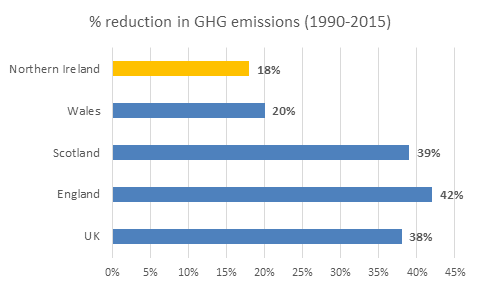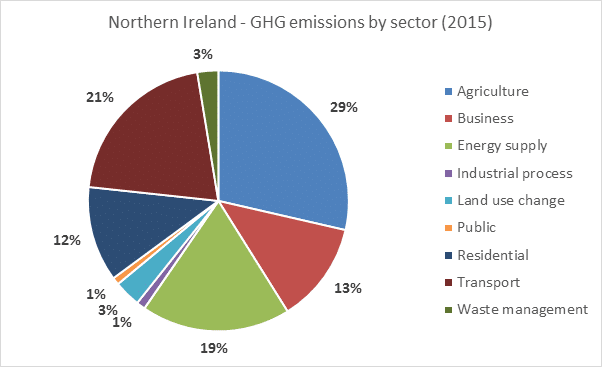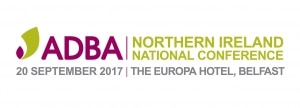On 15 March 2024, ADBA submitted its formal response to the Scottish Government's consultation on…
Rise in GHG emissions in Northern Ireland
The latest figures from the Northern Ireland greenhouse gas inventory, published today by the Department of Agriculture, Environment and Rural Affairs, show that emissions have increased year-on-year.
Below I have summarised the key findings, but if you would like to read the statistical bulletin in full and see all the data, click here.
In 2015, Northern Ireland's greenhouse gas (GHG) emissions were estimated to be 20.7 million tonnes of carbon dioxide equivalent*, an increase of 0.6% compared to 2014.
*Carbon dioxide equivalent, or CO2e, is a standard unit for measuring carbon footprints. The idea is to express the impact of each different greenhouse gas in terms of the amount of CO2 that would create the same amount of warming.
When looking at the longer term trend, Northern Ireland also fares worse than the UK as a whole – the UK reduced emissions by 38% between 1990 (the base year) and 2015, whereas Northern Ireland only managed to do so by 18%.

The largest GHG emitting sector in Northern Ireland is Agriculture, which accounts for almost 30% of all emissions, and it is in this sector that very little progress has been made thus far.
Whereas sectors such as energy supply (-28% CO2e emissions since 1990), industrial process (-69%) and waste management (-68%) have made large strides, the agricultural sector has lagged behind with only a 3% reduction in emissions since 1990.
This helps explain why Northern Ireland is lagging behind its UK counterparts in reducing its carbon footprint.

To help decarbonise the sector and ensure the future of farming is environmentally sustainable, Northern Ireland must invest in low carbon agriculture. The Committee on Climate Change (CCC) recognises agriculture as a “hard-to-reduce sector”, but technologies such as anaerobic digestion (AD) can help achieve these carbon savings.
On farm AD can help decarbonise the agricultural sector by:
- Providing on-site energy for farms in the form of electricity, gas or vehicle fuel, displacing carbon heavy fossil fuel combustion;
- Reducing methane emissions and other greenhouse gases from manure management;
- Avoiding artificial fertiliser use and reducing transportation costs by using the digestate, a co-product of the AD process, as a natural fertiliser.
Avoided methane emissions from manure management alone could reduce CO2e emissions by 2.4 Mt of CO2e across the UK, reducing agricultural sector emissions by 5%. When the benefits of on-site energy and avoided fertiliser use are included, the overall saving for the sector amounts to 10.3 Mt CO2e, a 20% reduction in emissions.
If you would like to find out more about the future of AD in Northern Ireland, be sure to register for the ADBA Northern Ireland Conference which will be taking place on the 20th September in Belfast.
On 5th-6th July in Birmingham, we will also be holding the UK AD & Biogas and World Biogas Expo 2017, where there'll be expert discussions on several topics, including those relevant to agriculture:
- The session from 12.40-14.00 on 6th July, chaired by Thom Koller, Policy Manager at ADBA, and include speakers from the CLA, NFU and leading universities, will be focusing on ‘AD and agriculture as the solution to desertification and a changing climate’.
- The session from 14.00-14.55 on 6th July in the Green Seminar room will cover the topic of ‘Growing crops for AD’, where there will be a discussion on what factors to take into account when choosing which crops to use for your AD plant.





